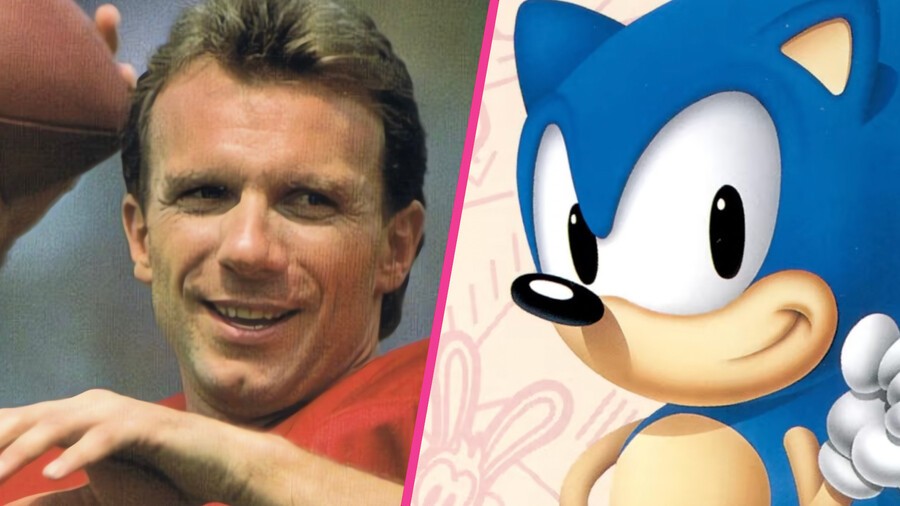
There's a common narrative that Sega wasn't capable of breaking Nintendo's stranglehold on the North American video game market until a certain blue hedgehog came along in 1991.
However, former Sega of America president Michael Katz – who joined the company from Atari in 1989 to help launch the Genesis in that region – is keen to challenge that account. Katz would be fired after a year and replaced by Tom Kalinske, the man who the history books often credit with the stunning turnaround in Sega's fortunes.
Kalinske most certainly played a massive role in securing 16-bit success for Sega in North America, but this narrative unfairly diminishes the contribution of Katz, who was instrumental in laying the foundations upon which Sonic would build.
Speaking to us in an exclusive interview, Katz explains his mission when he joined in 1989:
We had to launch Genesis with some titles that would be appealing to Nintendo Entertainment System owners – 90% of the category was still Nintendo. We needed to get them to convert over to the more powerful Genesis.
You can’t do it by just telling them you’ve got a better system. You’ve got to have games that they want to play on the other system. So sports were big in the US, football was the biggest sport, and Joe Montana was the most famous footballer. So we competed with Nintendo [for Joe Montana] and we won. We got Joe Montana for three or four years. He was the voice of and the picture of Sega Genesis.
As Katz says, Montana was the biggest name in the sport at that time, so getting him to endorse the console was a big deal (Montana would lend his name to five titles on the Genesis). While EA's Madden series was arguably the bigger of the two franchises, Joe Montana would prove to be a vital series for Sega, purely because of the famous face on the box (in a twist of irony, Sega enlisted the same team behind Madden to create the first Joe Montana title).
Montana was handsomely rewarded for lending his name and likeness to the series, but it was worth it for Sega, as Katz explains:
He made a lot on his royalties, and that really launched Sega Genesis. Not Sonic the Hedgehog. It got launched by people wanting to buy Genesis after they saw what could be done with the software quality as witnessed by a game like Joe Montana Football. Sonic the Hedgehog came [several] months later.
Sega's plan to create a formidable selection of sports titles was a solid strategy, but, as Katz explains, it was a result of Nintendo locking down third-party publishers to its NES system:
We couldn’t get any of the hot arcade titles. They were held exclusively by Nintendo. So, we had to look for something that we could hang our hat on and so we looked for personalities and that became “Genesis Does What Nintendon’t”. We did it by process of elimination, and we knew that personalities could be hot. Not as hot as the hot arcade games, but we couldn’t get the hot arcade games.
Joe Montana was just the beginning. Sega also signed up such as Pat Riley (basketball), Arnold Palmer (golf), Tommy Lasorda (baseball) and Mario Lemieux (hockey) to endorse their line-up of sports games – and Buster Douglas would headline its boxing title (which, in reality, was reskinned version of Taito's Final Blow arcade port). Douglas was the hot ticket at the time, having claimed the world heavyweight title from Mike Tyson in 1990.
Katz explains that it was a short-lived reign:
We wanted to get the best guys in every category, so we got the boxer Buster Douglas when he was champion. He only stayed champion for [8 months], but that didn’t matter because it satisfied our product line strategy and got the game sold to retailers, because they understood we were going for the best sports people. We had a deal with him where we didn’t pay him a big advance or guarantee, which was fortunate because he lost the championship later [against Evander Holyfield]. So we laugh about that.
So why was Katz fired? He didn't reach the lofty target set by Sega boss Hayao Nakayama – something that Katz feels was perhaps unrealistic, given Nintendo's grip on the market.
Katz says:
I got fired by Nakayama because we hadn’t reached in the first nine months of Sega Genesis a million units. The Japanese felt that anybody with Sega in the US should have been able to generate a million units. I had very little contact face to face with the Japanese when I was doing my job because I didn’t want to waste my time reporting what was going on to them. I wanted to try and generate sales and profits. So, I never really played the political game and became personal friends with the guys in Japan.
I think it was unrealistic for the Japanese to imagine us selling one million units because they knew nothing about how strong Nintendo’s grasp on the category was. Was I happy? Did I feel it was justified? I felt it was not justified, but I didn’t really care that much and I enjoyed starting my own search firm afterward.
What has been aggravating is watching other people taking credit for what we did in that year and a half period, which was basically to establish Sega in the US and have it grow into a very strong number 2.



